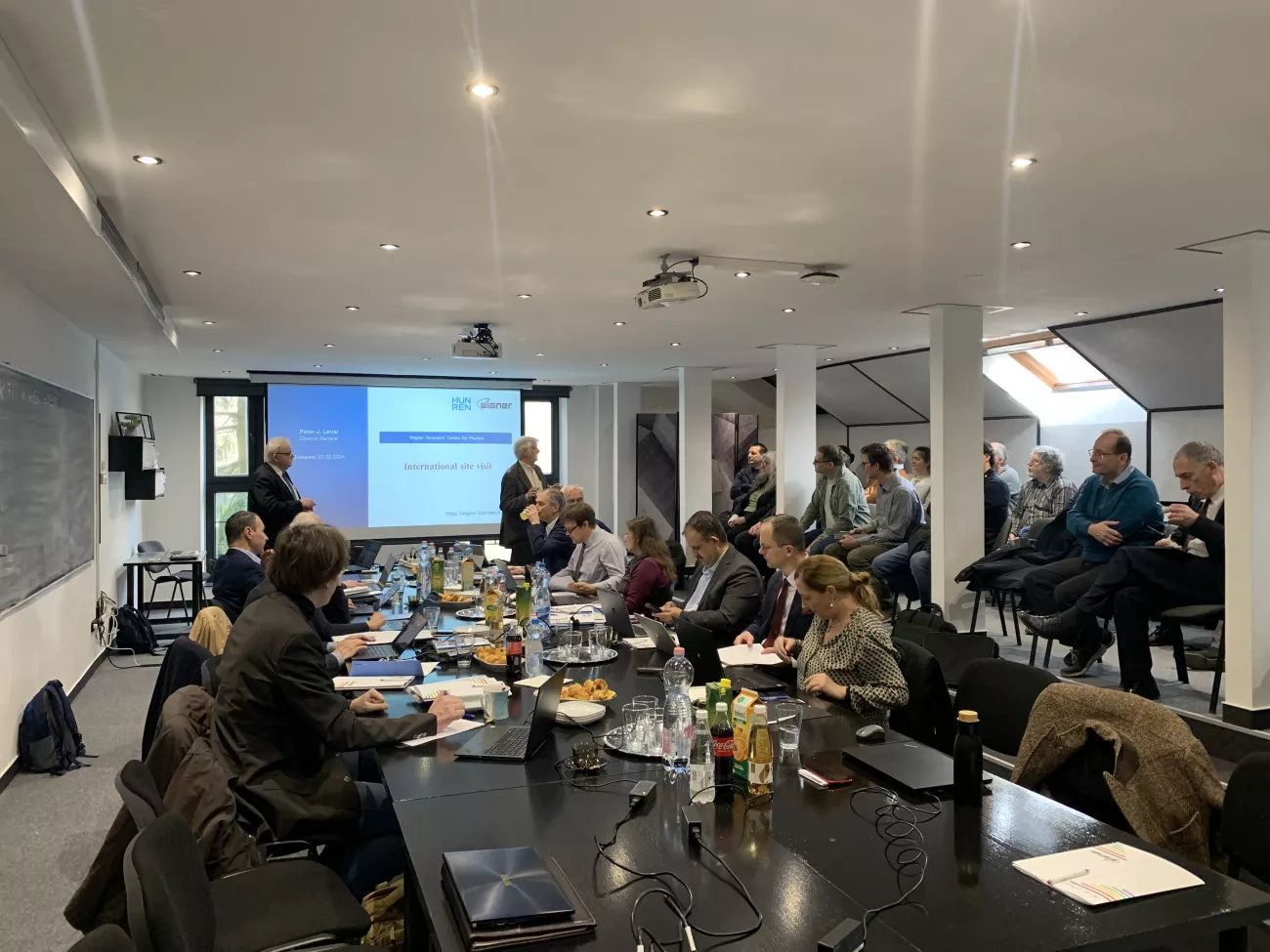As part of the comprehensive evaluation of the HUN-REN research institutes, the on-site review of the scientific activities of the HUN-REN Wigner Research Centre for Physics (HUN-REN Wigner RCP) and its affiliated institutes took place on 26-27 February 2024. During personal meetings with the leaders of the centre and its research groups, the Assessment Committee ‒ comprised of internationally renowned researchers in line with the institution's profile ‒ familiarised themselves with the research activities, the local research infrastructures, and also met with PhD students. The visit concluded with the committee sharing its initial impressions and key recommendations.
The members of the Assessment Committee evaluating HUN-REN Wigner RCP are:
Prof. Alexander J.B. Zehnder, Visiting Professor at Nanyang Technological University (NTU), Singapore, Professor Emeritus at ETH Zurich, Switzerland, Chairman of the HUN-REN Advisory Board
Dr. István Szabó, PhD, Deputy CEO for Strategy and Innovation at HUN-REN Headquarters, former Vice President for Science and International Affairs at the Hungarian National Research, Development and Innovation Office, founder of the Innovation Section at the Hungarian Economic Association
Prof. Peter Török, DPhil, Professor at Nanyang Technological University (NTU), Director of Imaging at the Singapore Centre for Environmental Life Sciences Engineering (SCELSE), Director of the NTU Optical Bio-Imaging Centre (NOBIC), Interim Director of the Institute for Digital Molecular Analytics and Science (IDMxS) (Singapore)
Prof. Dr. habil. Hassan Charaf, PhD, Dean of the Faculty of Electrical Engineering and Informatics at the Budapest University of Technology and Economics and Head of its Automation and Applied Informatics Department, member of the HUN-REN Governing Board
Prof. Szabolcs Márka, PhD, Walter O. LeCroy, Jr. Professor of Physics at the Columbia University in the City of New York, a co-discoverer of cosmic gravitational waves
Prof. Carlo Rizzuto, Full Professor at the Faculty of Engineering of the University of Genova, and Chair of the General Assembly of the Central European Research Infrastructure Consortium (CERIC-ERIC) (Italy)
Prof. Carl Paterson, Professor of Optical Physics and Director of Undergraduate Studies at the Department of Physics at Imperial College London (UK)
Dr. habil. Manfred Krammer, Head of the Experimental Physics Department at CERN, founder of the Department for Semiconductor Detectors at the Institute of High Energy Physics of the Austrian Academy of Sciences, Chairman of the Organising Committee of the Vienna Conference on Instrumentation series (Austria)
Prof. Tamás I. Gombosi, PhD, Konstantin I. Gringauz Distinguished University Professor of Space Science and Rollin M. Gerstacker Endowed Professor of Engineering at the University of Michigan, and founding Director of the Center for Space Environment Modeling (CSEM) (USA)
Prof. Dr. habil. Fedor Jelezko, PhD, Director of the Institute of Quantum Optics at Ulm University, Director of the Center for Integrated Quantum Science and Technology, and member of the Heidelberg Academy of Sciences (Germany)
Dr. Jana Kolar, Executive Director of the Central European Research Infrastructure Consortium (CERIC-ERIC), European Innovation Council (EIC) Ambassador, former Chair of the European Strategy Forum on Research Infrastructures (ESFRI) (Slovenia)
Dr. Zsuzsa Márka, Research Scientist at the Columbia Astrophysics Laboratory of Columbia University in the City of New York, a co-discoverer of cosmic gravitational waves (USA)
The comprehensive assessment of HUN-REN's 49 research institutes was launched in January 2024, at the initiative of President Balázs Gulyás. The aim is to provide an unbiased and candid assessment of the standing of HUN-REN's research institutes in the global competition and identify potential breakthrough points. Building on the results of the evaluation, and by incorporating international best practices and examples, a new research strategy that supports the defined objectives will be developed in collaboration with the research institutions.
